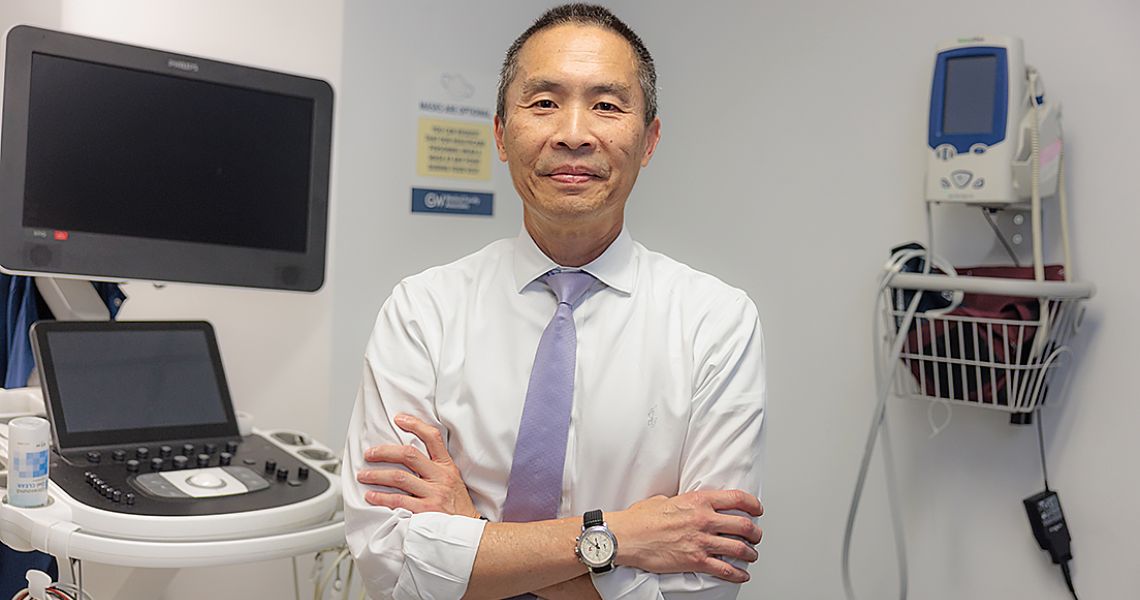The George Washington (GW) University School of Medicine and Health Sciences (SMHS) selected Norman Lee, PhD, professor of pharmacology and physiology at SMHS, to serve as director for the Integrated Biomedical Sciences (IBS) PhD Program. Beginning Aug. 1 and reporting to Senior Associate Dean for Research Alison Hall, PhD, Lee provides leadership and oversite for GW’s five IBS PhD programs — cancer biology, genomics and bioinformatics, microbiology and immunology, neuroscience, and pharmacology and physiology.
“I am honored to step into the role of Director of the IBS PhD program, following in the footsteps of Dr. Alison Hall,” said Lee. “Her visionary leadership and dedication have been pivotal in shaping the program’s success and fostering an environment of academic excellence. I am committed to building on that legacy.”
Lee brings extensive graduate training experience to the role. He is an accomplished teacher in SMHS medical and graduate school courses, and serving as a Graduate Program Director for the Cancer Biology PhD program and co-leading the T-32 research training grant from the National Cancer Institute in support of the GW Cancer Biology Training Program. Lee also co-leads the Cancer Biology and Immunology Program at the GW Cancer Center. His research interests focus on cancer genomics and regulation of RNA splicing, as well as molecular mechanisms of metastasis and disparities in prostate cancer.
The IBS program offers a common core of interdisciplinary science and professional skills training, as well as foundational courses and electives in each PhD program. The program features more than 60 faculty members offering biomedical research opportunities for PhD students.
“Elevating biomedical graduate programs has been an SMHS priority, given the number of students, the breadth of programs and the opportunity for the school to be at the cutting edge of graduate training and career development in biomedicine,” said Hall. IBS graduates, she noted, go on to research careers in academia, industry/biotech, and government/nonprofit, as well as careers in science communication and science policy.
The IBS program, added Hall, has been particularly successful in earning two NIH T-32 grants to support PhD training in cancer biology — led by Lee and Edward Seto, PhD, King Fahd Professor of Cancer Biology and associate center director for basic sciences at GW Cancer Center — and HIV Persistence, comorbidities, and treatment — led by Alberto Bosque, PhD, MBA, associate professor of microbiology, immunology, and tropical medicine, and Sanjay Maggirwar, PhD, MBA, professor and chair of the Department of Microbiology, Immunology and Tropical Medicine — and many IBS students have won F31 and other independent fellowships.
“As I take on this new challenge, I look forward to working closely with our faculty, students, and staff to continue driving the program’s growth and impact, ensuring that we remain at the forefront of research and education,” said Lee.



